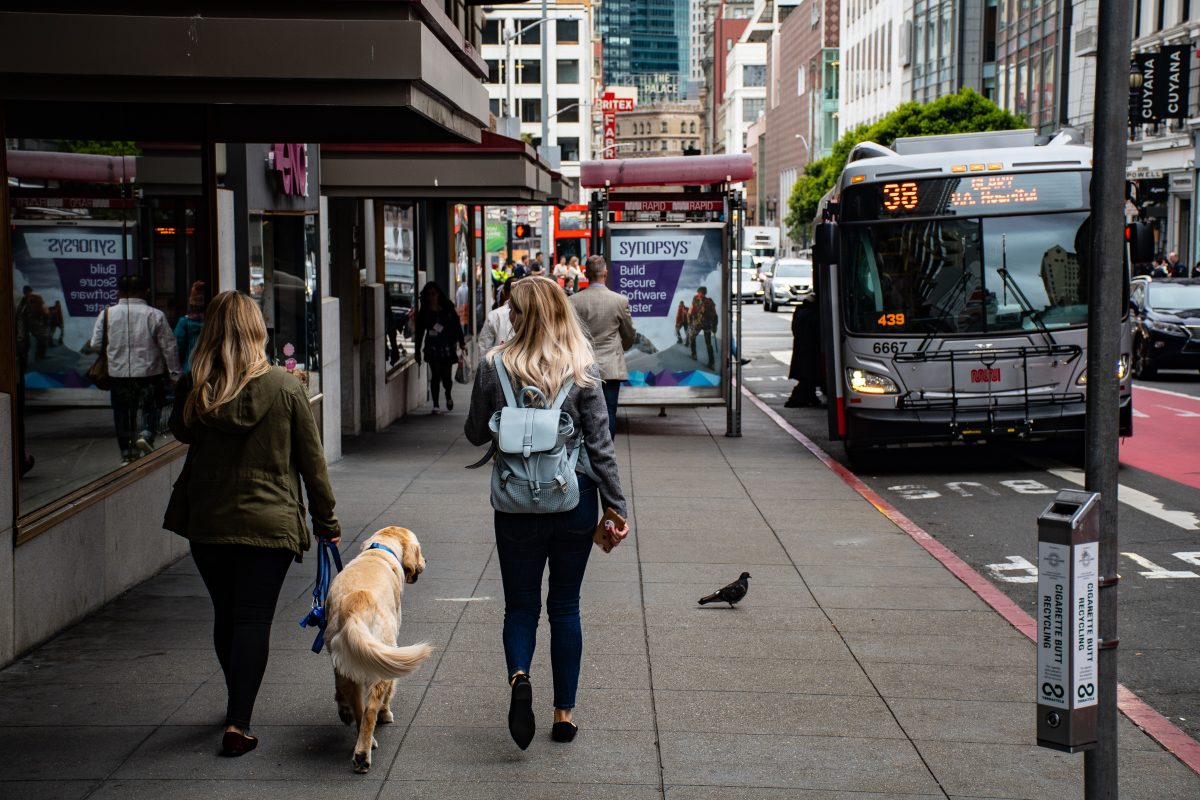Tag: Mass Transit
Creating a Roadmap for Transforming Transportation

Transportation represented 28% of US greenhouse gas emissions in 2016. Reducing transportation emissions is critical to tackling climate change. Yet inspiring more people to adopt walking, biking, and public transit, as well as electrifying cars and trucks, is a major hurdle. How can we reduce transportation emissions quickly, and what have we learned from the successes of other energy-saving initiatives?
Read moreBeyond the Game: Biking in Appleton, WI

For many, reducing car usage can be intimidating, but using more sustainable methods of transportation is a critical part of fighting greenhouse gas emissions. Biking also has other benefits, like being healthier, getting discounts, and rarely having to worry about finding a nice parking space.
In our current game in Northeast Wisconsin, we are lucky to have many passionate players. One of them, Linda S., reached out to us to let us know about her successes and struggles of living a mostly car-free life in Appleton, WI. We asked her a few questions about what it’s like to be a cyclist in her city.
Read moreThe Convincers | Student Sustainability Initiatives
“I convinced my family to carpool.”
“I got my dad to start recycling.”
Cool Choices is in the midst of an amazing partnership with some marvelous teachers at Waunakee High School. The teachers—along with students on their green team—are leading an effort to change commuting habits at the high school. And, along the way, they are also changing practices in households throughout the community.
The effort began last year when two WHS teachers applied for a small grant Cool Choices offered through the Wisconsin K-12 Energy Education Program (KEEP). The teachers used the grant to implement a multi-year effort to analyze and affect commuting habits at their school. When classes started in September they launched a competition where students and staff get points for reporting how they got to school each day, with extra points for the greener options. Organized into teams based on school clubs, students can win prizes throughout the 9-week competition.
Students and staff can also get ‘extra credit’ points for other environmentally sustainable actions like using re-usable lunch containers, doing a sustainable project in the community or by convincing their family members to be more sustainable.
We’re finding the student efforts at home to be quite inspiring. Almost 300 students and staff are participating in the competition (in a school population of 1,200) and thus far about 1 in 5 players have reported at least one effort to increase their family’s sustainable practices. Required to share details about their efforts, participants tell us …
- “I got all of my sisters to bring reusable containers for their lunches today instead of paper bags!”
- “I convinced my family to turn off lights before they leave rooms.”
- “Instead of using the plastic bags at the grocery store, I convinced my mom to buy 5 of the reusable cloth bags.”
- “I convinced my family to turn down the heat, because I mean COME ON people, it’s still technically summer, and why would we buy warm clothes if we weren’t going to wear them?”
- “Instead of buying all these plastic water bottles, I got them to change to using cups or re-usable water bottles, which also saves money!”
- “We switched to more energy efficient light bulbs!”
- “I had my mom take a re-usable bag for lunch today and we’re eating more vegetables and fruit at dinner.”
- “We take shorter showers”
- “I convinced my parents to carpool to work.”
- “My brother took a re-usable water bottle to football practice.”
- “I asked my parents to turn down the water heater!”
- “I was waiting in the car while my dad went into Sam’s Club and instead of keeping the car on and listening to the radio, I suggested that I turn it off and listen to my iPod.”
These stories demonstrate that students are really engaged and that they are doing a good job engaging their parents and siblings. This shared engagement is critical; it is easier for us to maintain habits when those habits are shared. More, just talking about one opportunity can lead to other opportunities.
The Waunakee project demonstrates the power of young people as the spokespeople for sustainability. A fun competition is inspiring teenagers to advocate for shorter showers, to convince their parents and siblings to adopt greener practices.
We are excited to watch these young people emerge as sustainability advocates in their homes and in their community. From our vantage point, the future looks just a little bit brighter when we look toward Waunakee these days.

